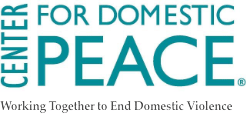You Have Thought about Calling the Police but…
You still love your partner?
Many people love the partners who abuse them. It’s possible to love the abuser and, at the same time, fear them and insist that the violence stop. Your partner is not likely to stop on their own. You’ve tried hard to make your relationship work, and your partner has promised to do the same. But you’ve seen that your partner hasn’t followed through with their promise. Even if you don’t love your abuser anymore, this is nothing to be ashamed of either.
You don’t want to get your partner in trouble?
You may be trying to keep your abusive partner from getting into trouble. This can put you and your children in more danger. Perhaps you haven’t gone to the police, or told the police everything if you did. Maybe you only got a restraining order, or tried to leave without any protection. These approaches can increase your danger. An abusive person is usually willing to use even more violence to re-establish their control. It is important for you to take every step possible to protect yourself.
Consider a different strategy to protect yourself: call our hotline to make a safety plan, seek a confidential refuge, make a police report, get a restraining order, get custody of the children. With legal help make your partner leave the home. Call the police again if your partner calls you to say he or she is sorry. Don’t drop or modify the restraining order. Follow through with the criminal process, even if you have hopes of getting back together with your partner in the future.
First, this strategy gives you time to think. Second, it focuses the abuser on their legal case, and gives your partner the chance to think about their illegal and immoral actions.
There are no guarantees about which approach will work best for you. Even if you hope to get back together, it’s important for your partner to recognize that domestic violence is unacceptable.
You don’t want your partner to go to court or jail, you just want them to get counseling?
In general, the courts can only order someone to get counseling if they have been found guilty of domestic violence.
Your children need both parents?
You may be concerned about your children’s relationship with their abusive parent. You may think that when you call the police or get a restraining order, your children will have to be cut off from their abusive parent. However, the courts rarely cut off a parent from their children completely.
Remember, you are the children’s parent and they depend on you for their security. When children see their parent living in fear and humiliation, they will feel the same emotions. Even when the abuser doesn’t directly abuse the children, domestic violence seriously harms them. Research shows that children of all ages are aware of the violence. The younger the child is, the more serious the effect. Children who live in a home with domestic violence frequently have learning, emotional, and behavioral problems, which can continue throughout their adult lives.
On the other hand, when children see their parent receiving help and getting to safety, they are not only rescued from immediate danger, but also learn they have a right to stop abuse in their own lives.
As you start to break free of domestic violence, tell the children that separation doesn’t mean that the abuser doesn’t love them. Tell them directly that no one should tolerate abuse. Some of the abusive parent’s behavior was harmful and criminal, so the abusive parent needs some time away. Tell the children it wasn’t their fault, it’s okay to be sad, and it’s okay to miss, love, or be angry at their abusive parent.
